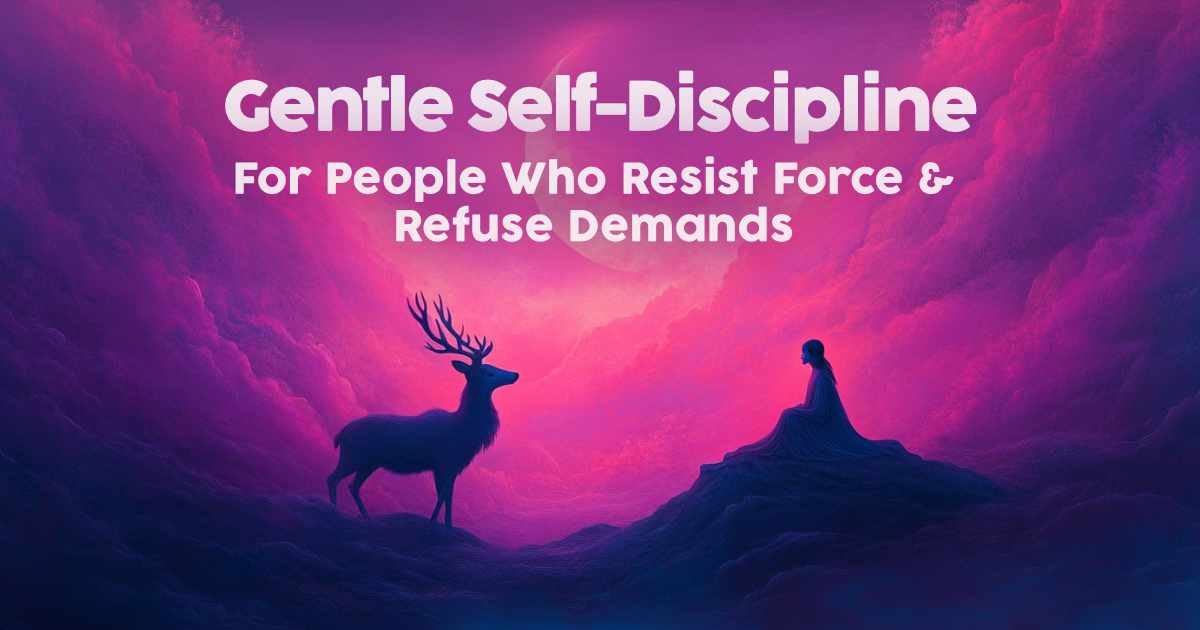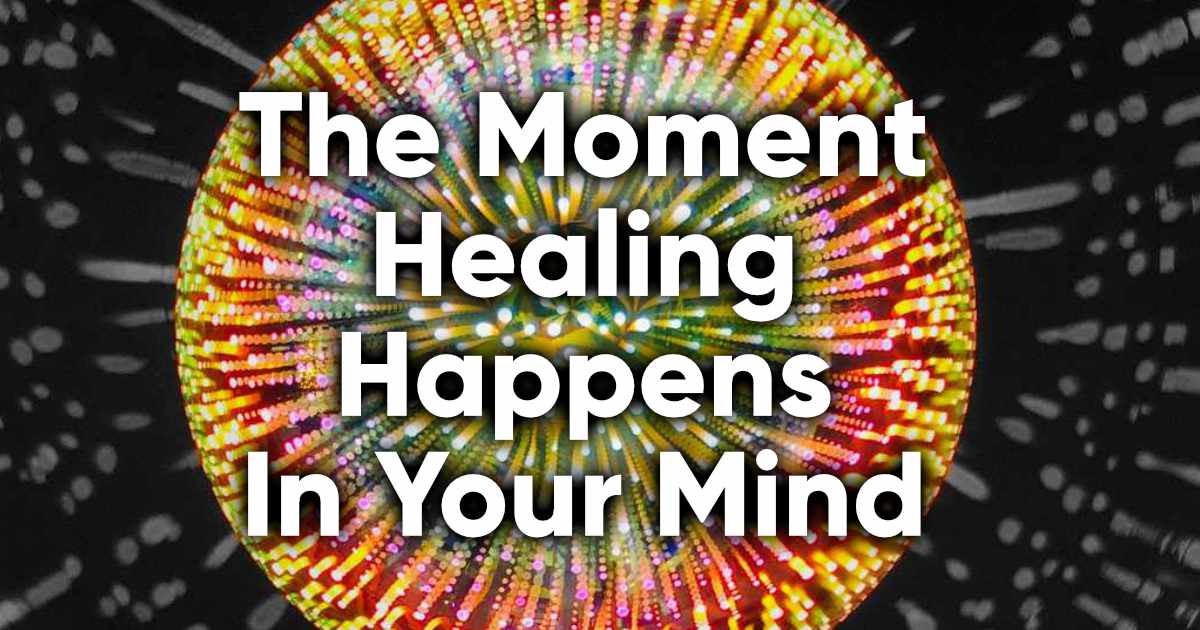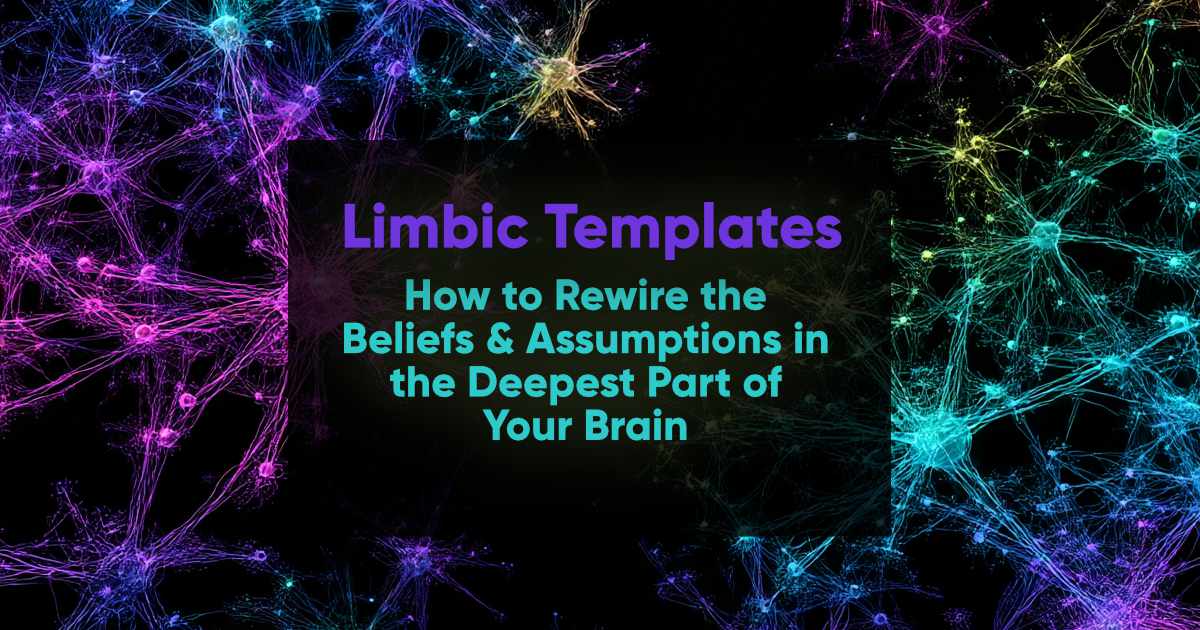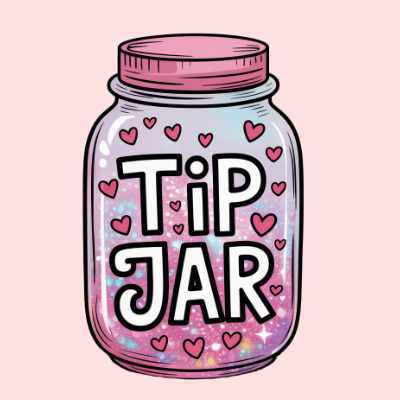Fav Links & Books
Everything I recommend for healing attachment, CPTSD, and for personal growth.
YouTube Channels
- Heidi Priebe – attachment
- Thais Gibson – attachment
- Briana MacWilliam – attachment
- Crappy Childhood Fairy – CPTSD, limerence, dating/relationships
- HealthyGamerGG – gaming addiction, social isolation
Courses & Communities
- IFS intro course (free) – 3 video introduction to parts work
- The Daily Practice – (free) – from Crappy Childhood Fairy, great for healing dysregulation, she also has a community and courses
- Personal Development School – created by Thais Gibson (see above YT channel)
- Larisa Noonan – ancestor work, healing from fundamentalism
Books (Amazon affiliate links)
- Complex PTSD: From Surviving to Thriving by Pete Walker
- Running on Empty: Overcome Your Childhood Emotional Neglect by Jonice Webb
- Facing Codependence by Pia Mellody
- The Body Keeps the Score by Bessel van der Kolk
- Waking the Tiger by Peter Levine
- Healing Your Aloneness by Margaret Paul & Erika Chopich
- Legacy of the Heart: The Spiritual Advantage of a Painful Childhood
- Blind to Betrayal – Why We Fool Ourselves We Aren’t Being Fooled
- Adult Children of Emotionally Immature Parents
- Self-Therapy:A Step-by-Step Guide to Creating Wholeness Using IFS by Jay Earley
- Healing the Shame that Binds You by John Bradshaw
- Nonviolent Communication by Marshall Rosenberg
- Healing the Fragmented Selves of Trauma Survivors: Overcoming Internal Self-Alienation
- I do not recommend “Attached” by Amir Levine. Although it is popular, it vilifies avoidant attachment and doesn’t even cover fearful-avoidant attachment.
Misc links I often send people to
- The Sensitivity Cycle and Nourishment Barriers – this is a concept from Hakomi, and it’s useful to explore when you have a barrier to taking in something you need. The four barriers are the barriers to knowing oneself or having clarity, taking action, being satisfied, or relaxing.
- TypeinMind – this is where I send people to figure out their MTBI type (like ENFP) based on their cognitive function stack.
- Unblending in IFS – unblending is then you ask an overwhelmed part to hold their own feelings so you can work with them without them overwhelming you with their feelings. It’s the foundation of parts work.
Self-love is a set of skills you can learn
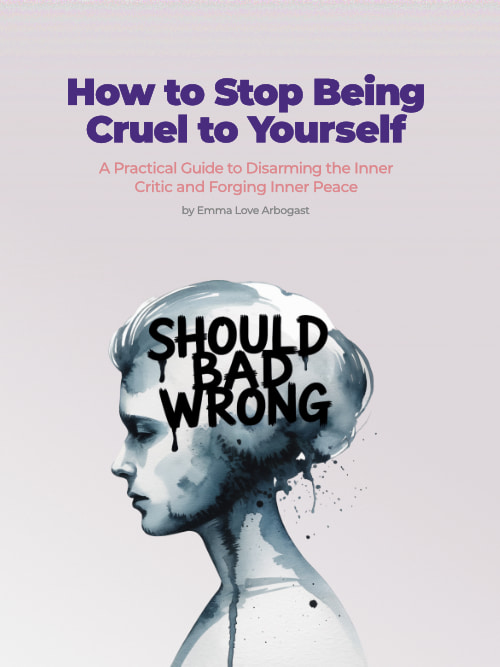
Stop Being Cruel to Yourself
$2.99
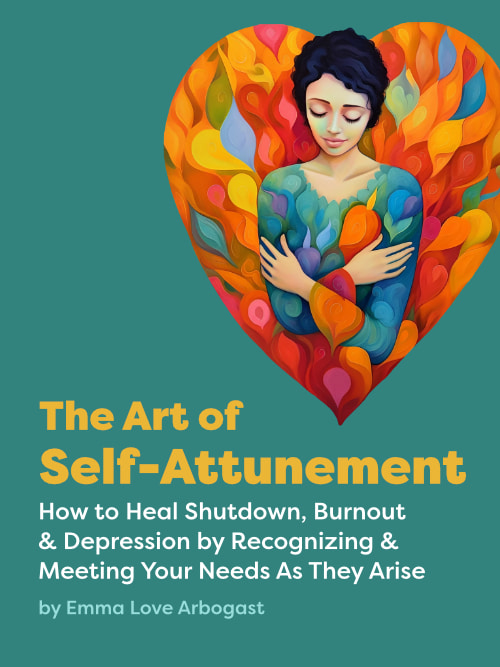

Hey there! If you're new here, welcome to the Emmaverse! 🌈✨
About me: I'm autistic/ADHD and I write about how to be free and happy from the inside out.
Keep in touch?
Self-Liberation Society
